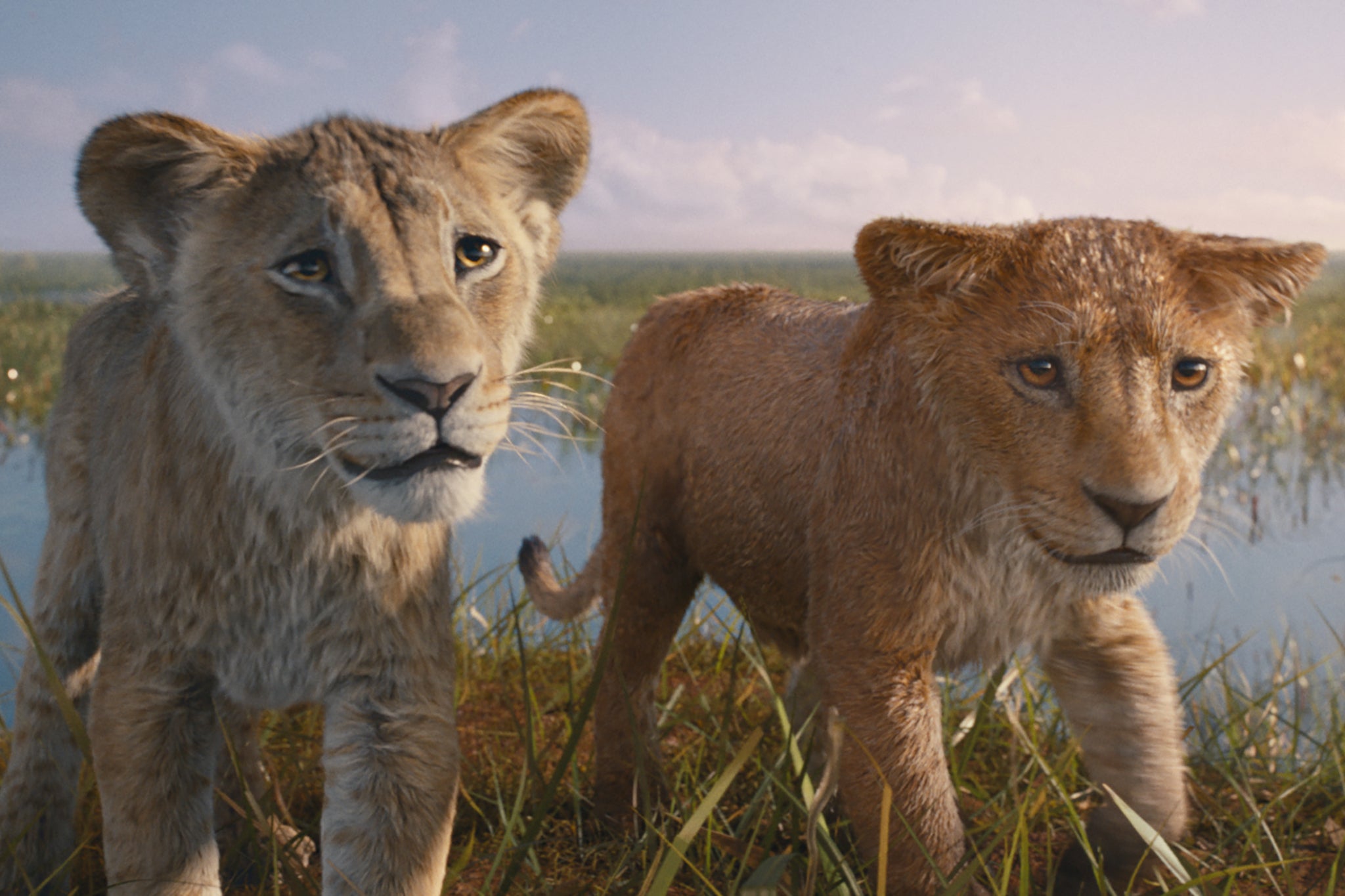Mufasa: The Lion King is a catastrophic waste of director Barry Jenkins
The Oscar-winner behind ‘Moonlight’ and ‘If Beale Street Could Talk’ can barely be found in this dreary and anonymous bit of franchise mining
Your support helps us to tell the story
From reproductive rights to climate change to Big Tech, The Independent is on the ground when the story is developing. Whether it's investigating the financials of Elon Musk's pro-Trump PAC or producing our latest documentary, 'The A Word', which shines a light on the American women fighting for reproductive rights, we know how important it is to parse out the facts from the messaging.
At such a critical moment in US history, we need reporters on the ground. Your donation allows us to keep sending journalists to speak to both sides of the story.
The Independent is trusted by Americans across the entire political spectrum. And unlike many other quality news outlets, we choose not to lock Americans out of our reporting and analysis with paywalls. We believe quality journalism should be available to everyone, paid for by those who can afford it.
Your support makes all the difference.Disney, it seems, is at least open to feedback. While the 2019 version of The Lion King may have been a hit, critics and audiences alike expressed an aversion to the uncanny inexpressiveness of its photorealistic, computer-animated felidae. And so, in its prequel, the lions have all had melted plastic grins slapped across their mouths. Some may prefer this. Personally, it frightened me on a primordial level, as if one of my old rainbow-splattered Lisa Frank pocket portfolios from the Nineties had gained sentience.
The sell here is both the promise of jacked-up anthropomorphism, and the talents of Oscar-winner Barry Jenkins, director of the miraculous Moonlight (2016) and If Beale Street Could Talk (2018). The news that he’d direct Mufasa: The Lion King sparked a minor controversy. Could he really turn what, on paper, seemed like arbitrary franchise mining into something extraordinary?
Unfortunately, finding the Jenkins in Mufasa is like putting a blindfold on in the Louvre and trying to feel your way to the Mona Lisa. Here and there, we can find the faint outline of his genius: a tight closeup on a character’s face, confronting the audience with the essence of their animalhood; a protracted take, in which the camera bobs and weaves between dry grasses; shots that simulate what it might look like if you attached a GoPro to a lion cub’s forehead. But, ultimately, Mufasa is yet another damning case study of the fragility of the artist’s voice in the modern studio machine. Is there anything Jenkins could have realistically done to tip the scales on what a dreary, formless piece of storytelling this is?
The film’s promotional cycle has repeatedly insisted we deserve to know why Scar, our original villain, turned out so catty and jealous. Supposedly he was once called Taka (Kelvin Harrison Jr), and was neither dry nor sarcastic, simply British. His antagonism towards Mufasa (Aaron Pierre) stemmed from a ruptured, childhood bond that brought them as close as brothers. Mufasa, torn from his family, is reluctantly adopted into Taka’s pride by his royal parents, Obasi (Lennie James) and Eshe (Thandiwe Newton).
Mufasa is a natural leader, despite his status, which threatens Taka’s claim to the throne when a eligible lioness, Sarabi (Tiffany Boone), turns up, after their pride suffers an attack by territorial albino lions, led by Kiros (Mads Mikkelsen) – will we be gaslit next into thinking Kiros wasn’t always such a grump and that his story deserves to be told, too? Pierre and Harrison are strong actors committed to the material, and while it’d be nice for Disney to imagine a villain not played by Mikkelsen for once, he’s yet to turn in an ineffective performance.
Yet Taka’s villain turn is so paper-thin that you can hear exactly when Harrison’s been directed to turn on his “evil” voice. Jeff Nathanson’s script is myopically focused on the idea that all roads must, without exception, lead to The Lion King – as emphasised by a framing device in which Simba (Donald Glover) and Nala’s (Beyoncé Knowles-Carter) cub, Kiara (Beyoncé’s actual daughter, Blue Ivy), is being relayed the story by Rafiki (John Kani), Timon (Billy Eichner), and Pumbaa (Seth Rogen).

We’re handed explanations for realities no one in their right mind ever questioned: where Rafiki found his big stick, why Pride Rock has that little section that juts out, how Zazu (here voiced by Preston Nyman) secured gainful employment. Lin-Manuel Miranda’s new batch of songs, while sprightly and hummable, bow in total deference to their predecessors. “When I am king,” goes the opening to one, sung by a pair of lion cubs. “No other animal will break my stride.” It’s a total case of déjà vu.
What’s most frustrating about Mufasa’s failures, at this point, is how predictable they are. While David Lynch’s Dune (1984) or Robert Altman’s Popeye (1980) were treated, at the time, as mass-marketed stains on their directors’s respective reputations, they were interesting and thorny enough a clash between individual vision and studio demand that people now (rightfully or wrongly) strive to reclaim them. But today there’s no allowance for that kind of risk. All Mufasa has done is force Jenkins to be ordinary.
Dir: Barry Jenkins. Starring: Aaron Pierre, Kelvin Harrison Jr., Seth Rogen, Billy Eichner, Tiffany Boone, Mads Mikkelsen, Blue Ivy Carter, Beyoncé Knowles-Carter. Cert PG, 118 mins
‘Mufasa: The Lion King’ is in cinemas from 20 December

Join our commenting forum
Join thought-provoking conversations, follow other Independent readers and see their replies
Comments